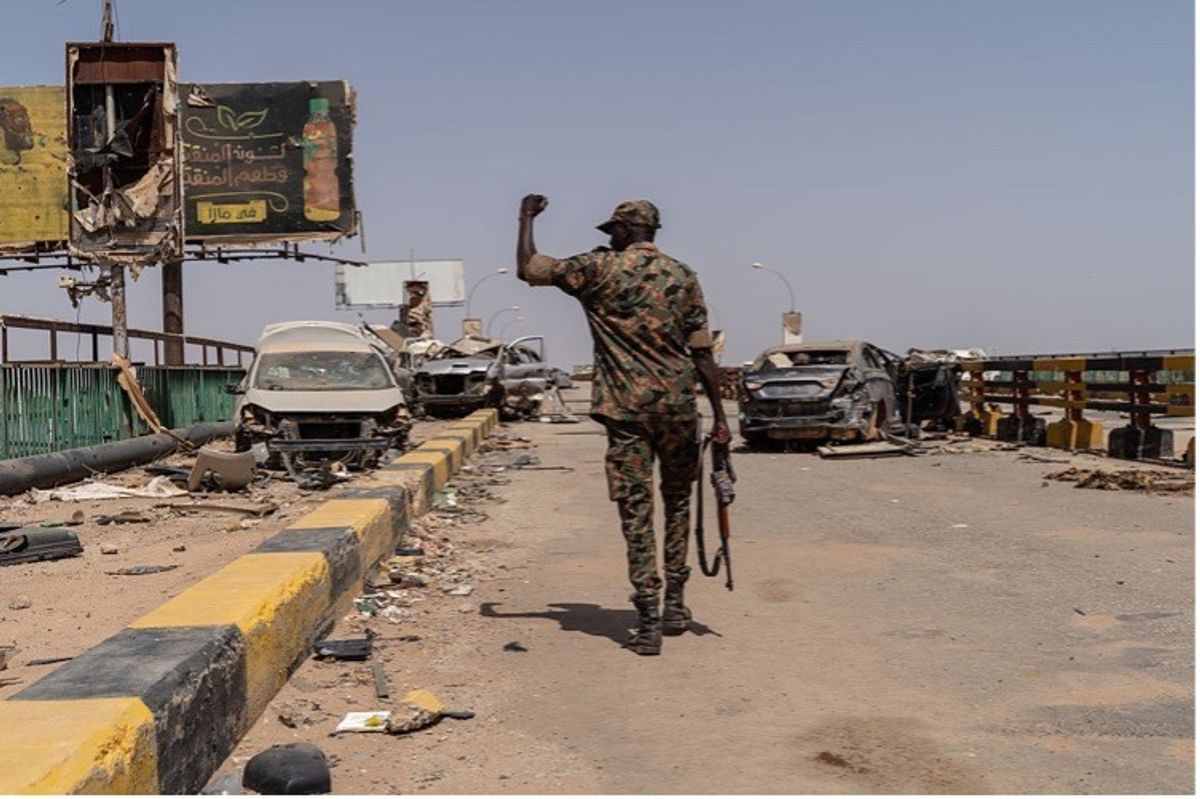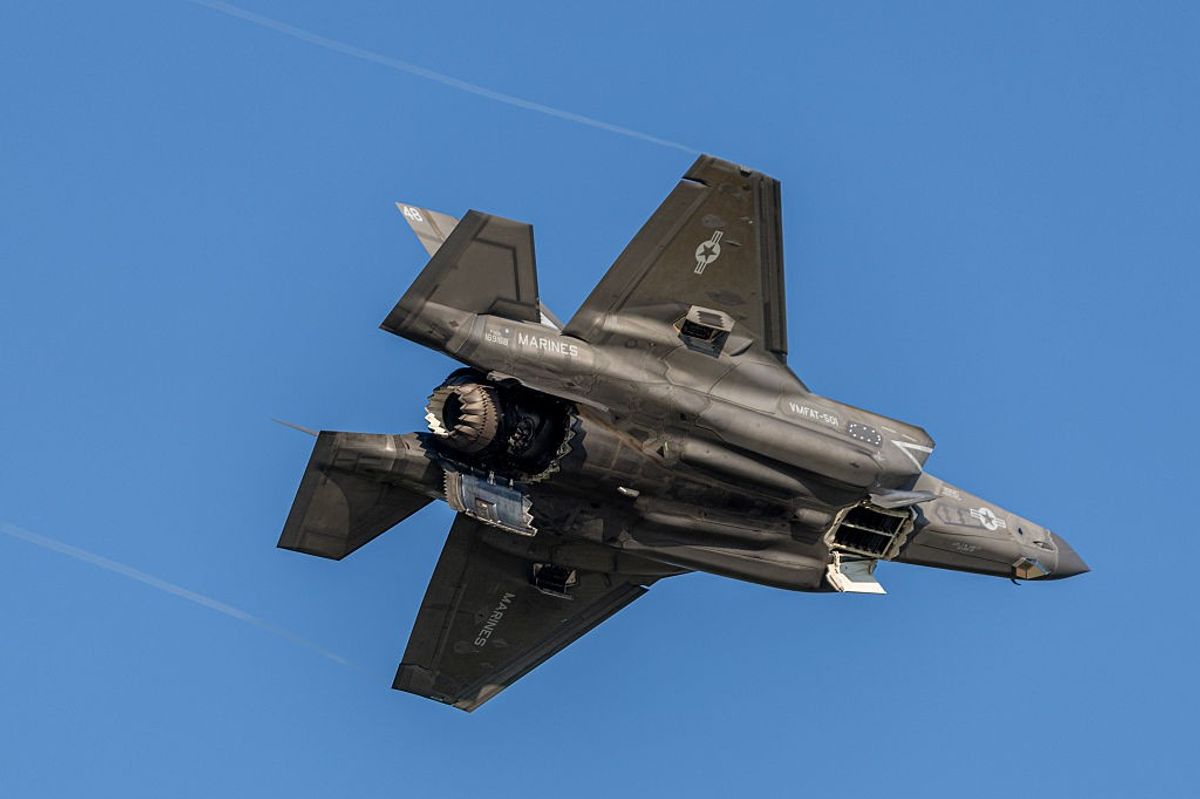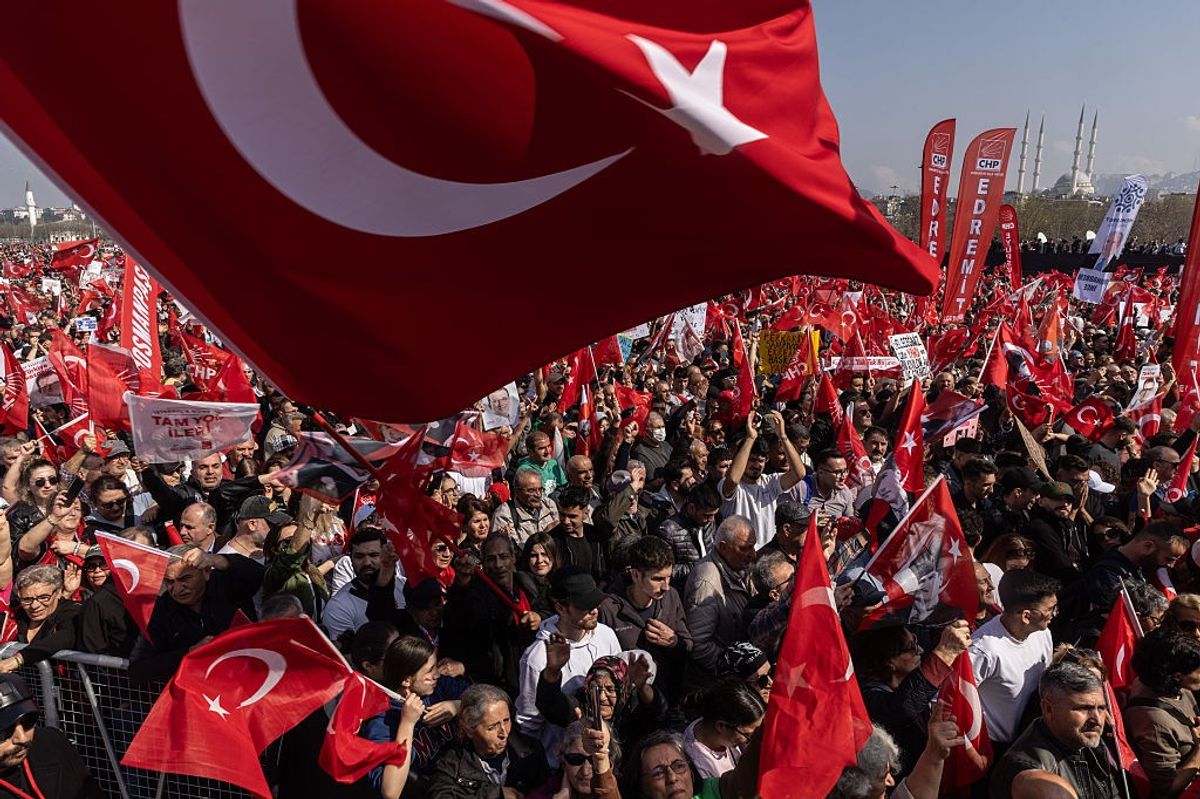EXCLUSIVE SUBSCRIBER+MEMBER INTERVIEW — After cruising to a second-round presidential victory over the weekend, Recep Tayyip Erdogan, who has ruled Turkey for 20 years, is now set to make it a full quarter century. President Joe Biden congratulated him in a phone call Monday, during which time Erdogan also reportedly expressed the desire to buy U.S.-made F-16 fighter jets, potentially acquiescing to a condition that Ankara drop its blocking of Sweden into the NATO alliance.
“Almost certainly, unless the Swedes reverse some of the steps that they are taking, Erdogan will find a way to bring Sweden into NATO,” said Cipher Brief Expert James Jeffrey, who served as former U.S. Ambassador to Turkey and Iraq, as well as Special Representative for Syria Engagement and the Special Envoy to the Global Coalition to Defeat ISIS.
“He’s transactional, and he knows he has no chance of getting an F-16 purchase from us without taking that step.”
Foreign ministers from Sweden and Turkey are set to meet “soon,” Sweden’s foreign ministry also said on Monday, more than three months after Stockholm formally applied for NATO membership – a move prompted by Russia’s invasion of Ukraine a year earlier.
Relations between the two nations have been strained, with Swedish critiques of Turkey’s record on human rights, as well as lingering questions of those Turkey considers members of militant groups residing inside Sweden.
The extent of what happens next, said Jeffrey, will in part ride on the nature of coming negotiations.
“Two things about Erdogan are transactional mentality and personal relationships,” he said. “And we don’t have a personal relationship right now at the presidential level. At other levels, the relations are actually pretty good … but with Erdogan, which is all important, we don’t.”
THE CONTEXT
- 2003: Islamist-based Justice and Development Party (AK) leader Recep Tayyip Erdogan wins a seat in parliament after AK Party parliamentary election victory. Prime Minister Abdullah Gul resigns, and Erdogan takes over as premier.
- 2011: Syrian civil war begins. More than 3.6 million Syrian refugees flee to Turkey.
- 2013: Gezi Park protests over plans to transform green space in Istanbul. Opponents to Erdogan say he is turning increasingly autocratic in rule. Police chiefs arrested over arrest of pro-government figures on corruption charges. Experts see it as part of a clash between Erdgoan and US-based Muslim cleric Fethullah Gulen.
- 2014: Prime Minister Erdogan wins unprecedented direct election for president.
- 2016: Violent coup attempt against Erdogan. Turkish authorities detain thousands of soldiers and judges accused of involvement in the failed coup attempt allegedly linked to exiled Fethullah Gulen. A subsequent crackdown on media and civil society contributed to colder relations with the EU.
- 2017: President Erdogan wins referendum to expand his presidential powers, including the right to impose a state of emergency, appoint top officials and intervene in the legal system.
- 2019: US military withdraws from northern Syria. Turkey attacks US Kurdish allies in the area shortly after.
- 2023: Turkey holds presidential elections. Neither Erdogan or the CHP party’s Kemal Kilicdaroglu won a majority. The election goes to a runoff. Erdogan wins, extending his power.
The Cipher Brief tapped Cipher Brief expert and former U.S. Ambassador to Turkey and Iraq, James Jeffrey, to assess where Turkey is headed following Erdogan's re-election. The transcript below is a portion of the full conversation and has been edited for length and clarity.
James F. Jeffrey, Former U.S. Ambassador to Iraq and Turkey
Ambassador James F. Jeffrey joined the Wilson Center in December 2020 as Chair of the Middle East Program. Ambassador Jeffrey served as the Secretary’s Special Representative for Syria Engagement and the Special Envoy to the Global Coalition To Defeat ISIS until November 8, 2020. He is a senior American diplomat with experience in political, security, and energy issues in the Middle East, Turkey, Germany, and the Balkans.
The Cipher Brief: How do you evaluate Turkish President Recep Tayyip Erdogan for the region, as well as for U.S. policy and its partnerships?
Jeffrey: It will be probably more of the same. Some of his anti-Western rhetoric was for election purposes, but a lot of it reflects both his own views and the views, frankly, of a lot of the Turkish population. And it's not anti-Western because they have no place else to go. Turks are very oriented towards the West, towards Europe, where there's between 4-5 million of them. And NATO membership and the customs union with the EU, it's their destiny. They just deeply resent what they think is second class treatment by the US and the EU. At times they're right, at times they're wrong, but the point is that tone is not going to go away.
Now in terms of basic policies, Erdogan will continue to manage not very differently than all of the leaders I've seen before since the 1980s. They're complex near abroad issues. Overall, they have an existential interest in containing Russia and Iran. They also have a near existential interest in maintaining good relations with them.
As an aside, I was just in Israel and I heard from every Israeli leader why they have the complicated relationship with Russia: because of [the] vulnerability [of] their operations in Syria to Russia creating problems, and Russia's ability to make the many hundreds of thousands of Jews still in Russia have significant restrictions to their Jewish life. So therefore, Turkey looks the same way particularly at Russia — because of its trade, gas and other [ties] with Turkey — and to a lesser extent with Iran, and worries about both exploiting the PKK in Iraq and Syria in particular. So it'll be a differentiated containment of Russia and Iran. We see that in the Ukraine war.
On balance, it's a major plus for us. Almost certainly, unless the Swedes reverse some of the steps that they are taking, Erdogan will find a way to bring Sweden into NATO, in fact, because he's transactional and he knows he has no chance of getting an F-16 purchase from us without taking that step. So that will be an important one.
The ceasefire that we negotiated in 2019 between Turkish forces and essentially the PKK offshoot, the Syrian Democratic Forces in northeast Syria, is still holding, but it's a bone of contention between both of us and it's going to require management on the matter of both Biden and Erdogan. More generally, the thing that's lacking in this relationship is a strong president-to-president relationship. They don't really have much of a relationship. The two things about Erdogan are a transactional mentality and personal relationships, and we don't have a personal relationship right now at the presidential level. At other levels, the relations are actually pretty good — defense, national security council, intelligence agencies — but with Erdoğan, which is all important, we don't. And we, the US, often have a hard time with transactional policies by our partners because we have a tendency to think you're with us or against us.
Good American policy can move that five points higher. Bad American policy can probably push it down to 50%. So there are inherent guardrails to how good the relationship can get or how bad it can be under Erdoğan.
As a Cipher Brief Subscriber+Member, you have exclusive access to virtual briefings with leading experts and top officials in the national security and intelligence space.
Subscriber+Members receive invitations to register via email.
Be sure to join us at our next virtual briefing.
The Cipher Brief: Can you address the nature of the complicated relationship that Erdogan has had with both with Russia and with the West, in the sense that it's what might be defined as sort of an imperfect NATO partner, or at least a complicated one?
Jeffrey: It’s an imperfect NATO partner, but it's also a very important one. So this is where the complications are. You can afford to have Greece, even though it gets no attention, as a complicated NATO partner. Name me a NATO operation Greece has ever participated in. But on the other hand, it almost never has any anti-NATO rhetoric. This is a flaw in our system. If you talk the talk, we'll let you slide on walking the walk.
But even if you walk the walk, which the Turks have done — they've supported dramatically every NATO operation, and they've also supported the operation in Northern Watch for decades; and they supported the whole fight against the Islamic state, with some caveats, but they supported it significantly both with their own troops and with the use of Incirlik Air Base by our air force — they've walked the walk, but they don't talk the talk. And that really pisses us off because of the way the triangle of the administration, Congress, and, kind of, the media and think tank world view, particularly, partners. And partners have to pledge fealty to us. It took us a long time to tolerate France doing that and it still rubs us the wrong way, but we get over it. Again, Israel, I mean or India, for very good strategic reasons they don't want to piss off Russia, but they're very helpful to us in the first case against Iran, and in the second case against China.
So we let them have a pass, but what they're not doing is sticking their finger in our eye all the time. And everyone does that. So as I said, [Erdogan] often walks the walk with bad grace, but quite effectively.
The other thing I didn't mention, but is very important, is you've got a whole host of hard-wired anti-Turkish lobbyists who have been around forever. But Erdogan gives them fresh meat to chew on all of the time because he's the gift that never stops giving, in terms of if you want to build up passionate arguments against Erdogan. In some respects, Putin and Russia's activities are just not as savagely attacked in Washington as Erdoğan and Turkey's actions, which are unbalanced [and] obviously far more positive. It's just how we are set up both generally and in the case of the specific lobbies that hate Turkey.
Turkey is a key player in NATO's nuclear strategy, which is one of the real pillars of the alliance. It is a key player. It hosts the radar for the anti-missile program against Iran. And if we need to, we can, and I think people are thinking about this now, use that anti-missile system against the Russians as well. And aside from their operational efforts in the Balkans and Afghanistan and such, they feel they don't get any credit for it. They don't get enough.
And Erdogan in particular doesn't look at the awful things he says, but as somebody who's dealt with him a lot, his comment would be, "Well, I have my reasons for saying that. You guys treat me badly. Plus I have my domestic constituencies and why do you care? Look what I do." But we do care what he says and what many other Turks say. I mean, there's a lot of resentment against the West and at the EU for not letting them in, and for taking Greece's side on all kinds of issues. (We're talking about international agreements signed by Europeans.) And with us, with the role that the lobbyists have in blocking things to Turkey, I mean we haven't sold them a single weapon in, I think, five or six years. The point is, this is a country that's invested probably half a trillion dollars, today's dollars, into American weapon systems, and their whole military is equipped with them. That's kind of hard to take.
And the argument of, "Well, you blocked the S-400," I can certainly understand and I've made the points repeatedly to the Turks why the S-400 means you can't have F-35s, but I've yet to have anybody explain to me why we should [care] about Turkey buying S-400s. If it had led to breaking the dam and 10 other NATO states have now racked up $150 billion in Russian purchases, fine, but it has led to none of that. If it had led to Turkey making any other Russian purchases in the last half a decade, then I could see the argument. But right now, Turkey's main effort is to try to buy $6 billion in American planes.
So when you ask that question, people get embarrassed and they say, "Well, we got a law." Yes, it's a law we don't apply to Egypt and India.
The Cipher Brief is committed to publishing a range of perspectives on national security issues submitted by deeply experienced national security professionals.
Opinions expressed are those of the author and do not represent the views or opinions of The Cipher Brief.
Have a perspective to share based on your experience in the national security field? Send it to Editor@thecipherbrief.com for publication consideration.
Read more expert-driven national security insights, perspectives and analysis in The Cipher Brief because National Security is Everyone’s Business














